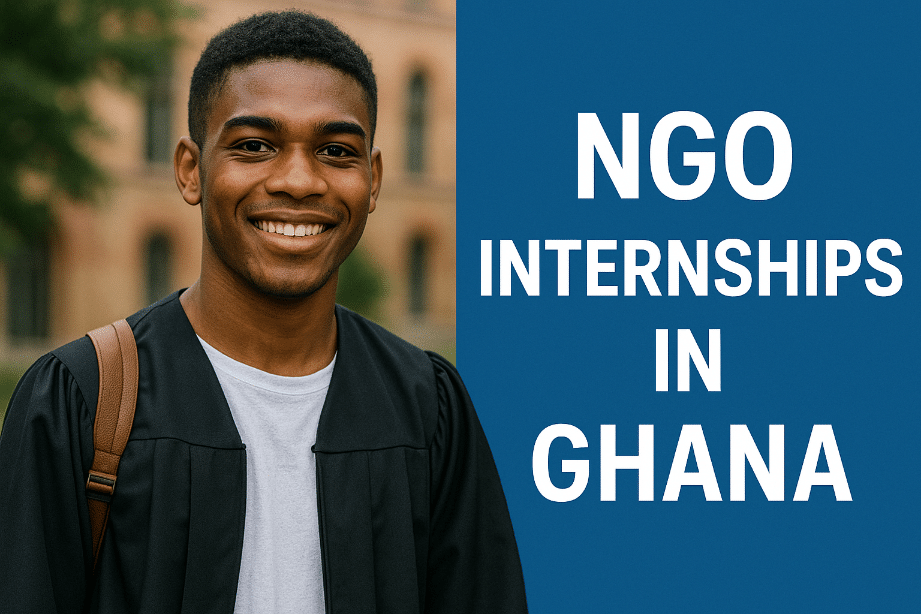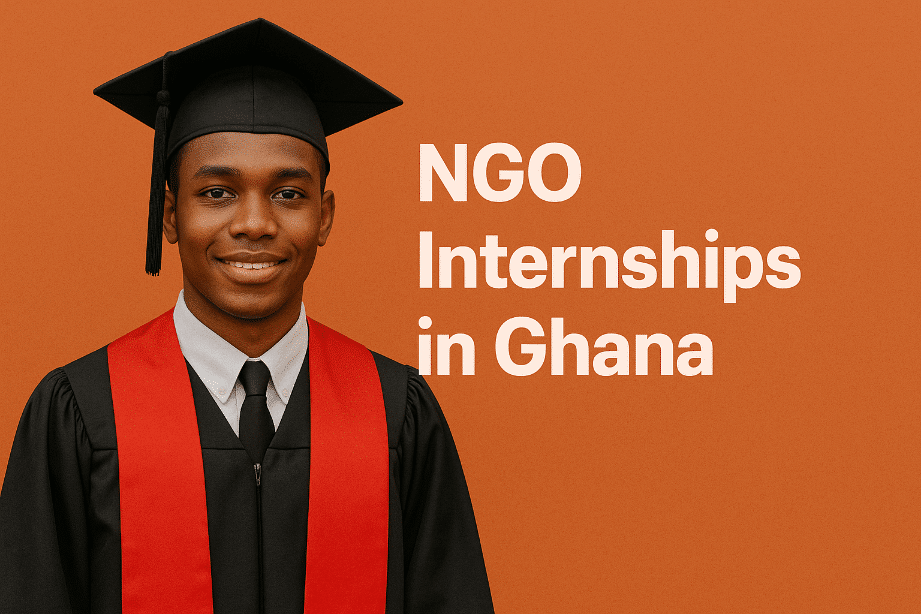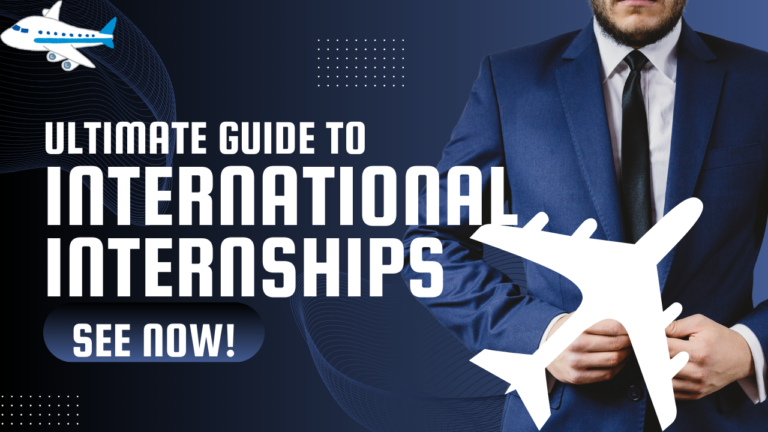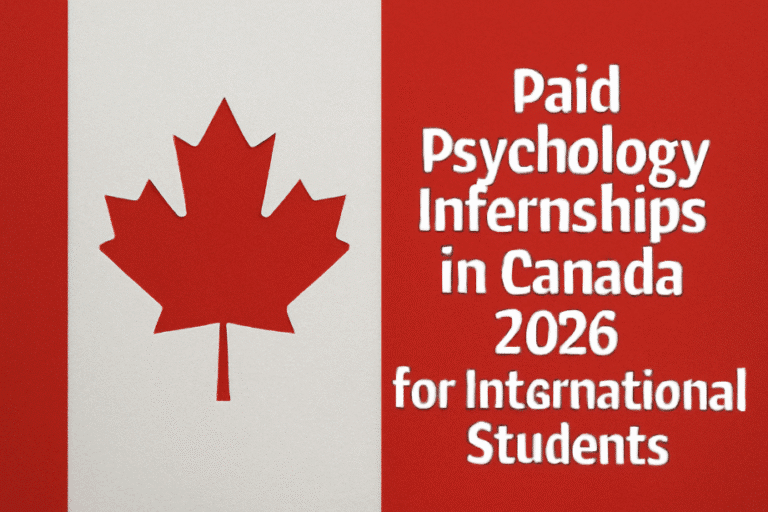NGO Internships in Ghana: Building Your Career While Making a Difference
After fifteen years of working within Ghana’s non-governmental organization sector and helping hundreds of students secure meaningful internship placements, I can tell you that NGO internships in Ghana offer some of the most transformative professional experiences available in our country. Through my journey from a field coordinator to now running my own development consultancy, I’ve witnessed firsthand how these opportunities shape both careers and communities.
When I started my career at World Vision Ghana in 2009, I never imagined I’d spend the next decade and a half helping students discover the incredible world of development work. Today, I maintain relationships with over 50 NGOs across Ghana and have successfully placed more than 800 interns in organizations ranging from grassroots community groups to international development agencies.
Why I’m Passionate About NGO Internships in Ghana
Ghana’s NGO sector is remarkably diverse, and I’ve had the privilege of working with organizations addressing everything from rural healthcare to urban youth development. What excites me most about NGO internships is their dual impact – while students gain invaluable professional experience, they’re simultaneously contributing to meaningful social change.
I’ve seen shy university students transform into confident project managers through internships at organizations like Plan International Ghana. I’ve watched engineering students discover their passion for water and sanitation work through placements with Water Aid Ghana. These experiences don’t just build resumes; they build character and purpose.
Major NGO Categories Where I’ve Successfully Placed Interns
International Development Organizations – My Flagship Placements
Through my years in the sector, I’ve developed strong relationships with major international NGOs operating in Ghana. At World Vision Ghana, where I spent five years, I’ve placed interns in their child protection, livelihood development, and emergency response programs. Their 6-month internship program offers monthly stipends of GHS 600-900 plus field allowances.
ActionAid Ghana has been another consistent partner. I’ve placed social work and development studies students in their women’s rights and governance programs. One memorable placement was Ama, a University of Development Studies graduate who interned with their rural women’s cooperatives project in the Northern Region. She’s now ActionAid’s Program Coordinator for Women’s Economic Empowerment.
Oxfam Ghana regularly takes my recommendations for their policy and advocacy team. I’ve placed political science and law students who’ve worked on their “Even It Up” campaign addressing inequality. The experience typically includes travel to rural communities and direct interaction with beneficiaries – something I always emphasize to prospective interns.
RELATED ARTICLES:
- Cyber Security Internship in Ghana: Your Gateway to a Thriving Tech Career
- Internships: The Ultimate Guide to Global Perspectives, Trends, and Opportunities
Healthcare and Medical NGOs – Where Impact is Immediate
My partnership with Doctors Without Borders (MSF) Ghana began when I helped them recruit a public health intern for their malaria prevention program in the Upper West Region. Since then, I’ve placed over 40 students in various medical NGOs across the country.
At Partners in Health Ghana, I’ve placed nursing and medical students in their community health worker training programs. The organization provides accommodation in Nkoranza and a monthly allowance of GHS 500 plus meals. I particularly remember placing Kwaku, a KNUST medical student, who worked on their tuberculosis treatment program and later secured a scholarship for further studies in the United States.
The Ghana Health Service collaborates with numerous international health NGOs, and I’ve leveraged these relationships to place students in organizations like Jhpiego Ghana (focusing on maternal health) and FHI 360 (HIV/AIDS prevention programs). These placements often lead to full-time opportunities with international health organizations.

Environmental and Conservation Organizations – My Green Placements
Ghana’s environmental sector has grown significantly during my career, and I’ve been fortunate to work with pioneering organizations in this space. At the Wildlife Division of the Forestry Commission, I’ve placed biology and environmental science students in wildlife conservation programs at Mole National Park and Kakum National Park.
Green Belt Movement Ghana, inspired by Wangari Maathai’s work, has taken several of my recommendations for their reforestation projects. I placed Akosua, an agricultural science student from UG, who worked on their community tree-planting initiatives in the Eastern Region. She now leads her own environmental NGO focusing on climate change adaptation.
Conservation International Ghana has been another valuable partner. Their marine conservation program on the coast regularly takes marine biology students, and I recommend it. The work involves community education about sustainable fishing practices and marine ecosystem protection.
Education and Youth Development NGOs – Building Tomorrow’s Leaders
My work with education-focused NGOs began at Right to Play Ghana, where I served on their advisory board. I’ve placed education and psychology students in their sport-for-development programs in schools across the Greater Accra and Ashanti Regions.
Teach for Ghana, modeled after Teach for America, has taken numerous recent graduates I’ve recommended for their two-year fellowship program. While technically not an internship, I’ve helped place over 60 university graduates in this transformative program that places them as teachers in underserved schools.
At Room to Read Ghana, I’ve placed students interested in girls’ education and literacy programs. Their internships involve working directly with adolescent girls in rural communities, developing life skills curricula, and supporting programs aimed at promoting school completion.
How I Help Students Navigate NGO Internship Applications
My University Partnership Strategy
I maintain formal partnerships with career services at major Ghanaian universities. At the University of Ghana’s School of Public Health, I conduct annual workshops on NGO career paths. At GIMPA’s Public Service Training Institute, I guest lecture on development sector opportunities.
My relationship with the University for Development Studies has been particularly fruitful – their development studies and agriculture programs produce ideal candidates for rural development NGOs. I’ve placed over 100 UDS graduates in NGO internships across northern Ghana.
My Sector-Specific Approach
Different NGO sectors require different application strategies. For health NGOs, I emphasize practical experience – volunteering at local health centers, participating in community health outreach programs. For environmental organizations, I encourage students to engage with local environmental issues, perhaps through campus sustainability initiatives.
My Network Within the Development Community
After fifteen years in this sector, I know the key decision-makers at most major NGOs in Ghana. At Plan International, I worked directly with the Human Resources Manager, who alerted me to upcoming internship opportunities. At Care Ghana, the Country Director is a former colleague who trusts my recommendations.
Realistic Expectations for NGO Internships

Compensation and Benefits
Based on my extensive placement experience, here’s what students can realistically expect:
International NGOs: GHS 500-1,200 monthly (organizations like World Vision, Plan International) Local NGOs: GHS 200-600 monthly (smaller organizations but often more hands-on experience) Faith-Based Organizations: GHS 300-700 monthly (Catholic Relief Services, World Vision) Environmental NGOs: GHS 400-800 monthly (often includes field allowances) Health NGOs: GHS 600-1,000 monthly (MSF, Partners in Health provide accommodation)
Beyond monetary compensation, I’ve negotiated additional benefits including:
- Accommodation in rural placements (especially health and agricultural programs)
- Transportation for field visits
- Training opportunities and certification programs
- Conference attendance (I’ve sent interns to regional development forums)
- Networking opportunities with international development professionals
The Realities of NGO Work
I always prepare students for the realities of development work. Unlike corporate internships, NGO work often involves:
- Travel to rural areas with basic accommodation
- Working with vulnerable populations requires sensitivity and cultural awareness
- Limited resources demand creativity and resourcefulness
- Flexible schedules, including weekend community events
- Emotional challenges when working with poverty, illness, or social issues
Types of Projects I’ve Seen Interns Lead
Community Development Projects
At TechnoServe Ghana, I placed an agricultural economics student who led a cocoa farmer training program in the Western Region. She organized training sessions for 200 farmers on post-harvest handling techniques, directly impacting their income levels.
Research and Policy Work
ActionAid Ghana regularly takes interns for its policy research. I placed a political science graduate who conducted research on land rights for smallholder farmers. Her work contributed to a policy brief that was presented to Parliament’s Agriculture Committee.
Program Implementation
At Grameen Ghana, I’ve placed business and economics students who work directly with microfinance beneficiaries. One intern I placed, Kofi, helped establish three new community banks in the Volta Region and later joined the organization full-time.
Monitoring and Evaluation
Many NGOs need support with program evaluation. I’ve placed statistics and economics students with organizations like Innovations for Poverty Action Ghana, where they design and implement impact assessments for development programs.
My Success Stories That Keep Me Motivated
Let me share some transformative stories from my years of placements:
Akua’s Journey: I placed Akua, a social work student, with Compassion International Ghana in 2018. She worked with their child development program in Kumasi. Today, she’s the Regional Program Manager overseeing child development programs across the Ashanti Region, impacting over 5,000 children.
Samuel’s Transformation: Samuel came to me as a quiet agricultural science student. I placed him with Presbyterian Agricultural Services in Tamale, working on their climate-smart agriculture program. He’s now pursuing a PhD in Agricultural Development at UC Davis on a full scholarship, funded by his connections made during his internship.
Gifty’s Leadership Path: Gifty interned with Women in Law and Development Africa (WiLDAF-Ghana) through my recommendation. She worked on their domestic violence prevention program. Today, she leads her own NGO addressing gender-based violence and has received recognition from the Ministry of Gender.

My Application Strategy for NGO Internships
Understanding Organizational Culture
Each NGO has distinct values and approaches. World Vision emphasizes Christian values and child-focused development. Oxfam focuses on inequality and social justice. I help students research organizational cultures and tailor their applications accordingly.
Demonstrating Passion for Development
NGO hiring managers look for genuine commitment to social change. I encourage students to volunteer with local organizations, participate in community service, or engage with social issues on campus. This demonstrates authentic interest beyond just securing an internship.
My Interview Preparation Method
NGO interviews often include scenario-based questions about working with vulnerable populations or handling cultural differences. I conduct role-playing exercises where students practice responding to challenging situations they might encounter in the field.
Challenges I Help Students Navigate
Cultural Sensitivity in Rural Areas
Many internships involve working in rural communities with different languages and customs. I prepare students for these experiences through cultural orientation sessions and connections with community leaders.
Managing Expectations
Development work progresses slowly, and I prepare students for this reality. Unlike corporate environments where results are immediate, NGO work requires patience and a long-term perspective.
Safety and Security
Working in remote areas requires safety awareness. I provide comprehensive briefings on personal security, health precautions, and emergency procedures for rural placements.
Building Long-term Careers in Development
My Pathway Recommendations
I’ve observed several career trajectories for successful NGO interns:
- Program Management: Starting as field officers and advancing to program coordinators
- Policy and Advocacy: Moving from research roles to policy advisory positions
- Consulting: Leveraging field experience to provide technical assistance to multiple organizations
- International Opportunities: Using Ghana experience to secure positions with international organizations
Advanced Education Opportunities
I maintain relationships with scholarship providers and regularly nominate exceptional interns for further education opportunities. The Mastercard Foundation, USAID, and various European donors offer scholarships for development studies, and NGO experience significantly strengthens applications.
My Final Advice for Aspiring Development Workers
After placing hundreds of students in NGO internships across Ghana, I’ve learned that success in this sector requires more than academic qualifications. The students who thrive are those who genuinely care about social impact, demonstrate cultural humility, and maintain optimism despite challenging working conditions.
NGO internships in Ghana offer unique opportunities to contribute to national development while building international careers. Whether you’re interested in health, education, environment, or governance, there’s an organization working on issues you care about.
I encourage students to view NGO internships as investments in both personal growth and social impact. The skills you’ll develop – project management, cross-cultural communication, problem-solving under resource constraints – are increasingly valued in all sectors of Ghana’s economy.
The development sector needs passionate, skilled professionals who understand local contexts while thinking globally. Through strategic NGO internships, you can build the foundation for a career that’s not just professionally rewarding but personally fulfilling and socially impactful.
Remember, every successful development professional I know started with curiosity about how to make their community better. NGO internships provide the perfect platform to explore that curiosity while building the skills and networks that will define your career.








